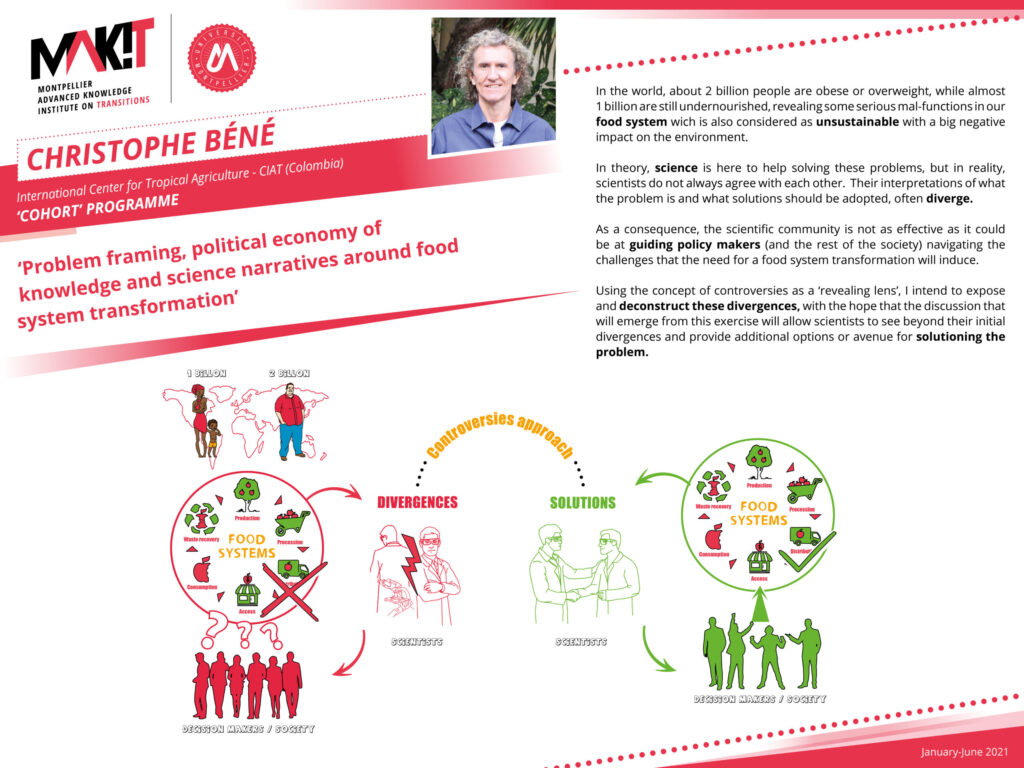Christophe Béné
Christophe Béné is a Senior Policy Expert at the International Center for Tropical Agriculture (CIAT) – now part of the ‘Alliance of Bioversity International and CIAT’ and member of the Consultative Group on International Agricultural Research (CGIAR) -. He has 20+ years of experience conducting inter-disciplinary research and advisory work in different parts of the world (Africa, Asia, Pacific), focusing on poverty alleviation, food security, and more generally low income countries’ economic development.
In his career, Dr. Béné has worked on a wide range of topics, including natural resource management, analysis of policy and science-policy interface, resilience (measurement) and more recently food systems. Before joining CIAT in 2015, he worked for different research organizations including the Institute of Development Studies (IDS) in the UK, the WorldFish Center in Egypt and Malaysia, and the Department of Economics of the University of Portsmouth, UK.
Dr. Béné holds a PhD in Environment and Life Sciences from the University of Paris 6 (France), a post-graduate Diploma in Development Economics from the School of Development Studies at the University of East Anglia (UK) and a Master in Environmental Sciences from the University of Marseille (France).
The general context of this research is the current “global crisis” that our food system is facing and the urgent transformation that is needed to maintain or restore its sustainability. Indeed, in the world, about 2 billion people are obese or overweight, while almost 1 billion are still undernourished, revealing some serious mal-functions in our food system wich is also considered as unsustainable, with a big negative impact on the environment.
In theory, science is here to help solving these problems, but in reality, scientists do not always agree with each other. Their interpretations of what the problem is and what solutions should be adopted, often diverge. As a consequence, the scientific community is not as effective as it could be at guiding policy makers (and the rest of the society) navigating the challenges that the need for a food system transformation will induce.
In this context, the objective of this project is to explore the specific role that science and scientists are currently playing in shaping the debate about this concept of food system transformation at the interface between policy, science and societies. Using the concept of controversies as a ‘revealing lens’ I intend to expose and deconstruct these divergences, with the hope that the discussion that will emerge from this exercise will allow scientists to see beyond their initial divergences and provide additional options or avenues for solutioning the problem.
